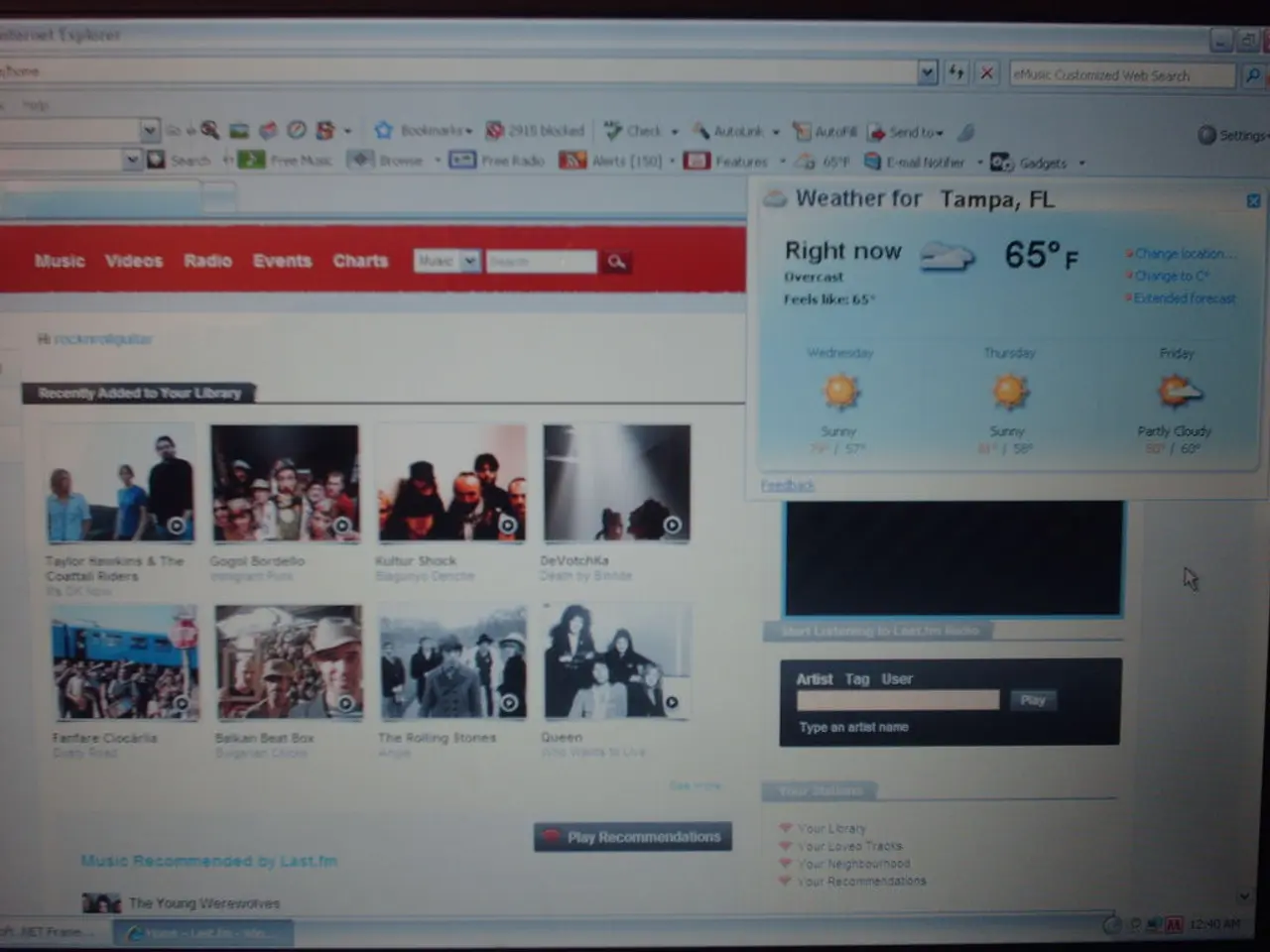Impact of IP Addresses on Online Connectivity
In the digital world, location plays a significant role in shaping our online experiences. Websites often customise content based on our approximate location, determined by our IP addresses. But what if you wanted to access content from a different region? That's where proxy servers come into play.
Proxy servers offer a simple yet versatile solution to bypass location-based internet restrictions. They mask a user's actual IP address and replace it with one from the proxy server, which could be located in a different geographic location. This deception tricks websites into believing that the user is accessing the internet from the proxy server’s location, allowing users to access geo-restricted content, preserve anonymity, and conceal their true location [1][2][4].
Proxies affect location-based content in several ways. By routing traffic through an IP address tied to a different country or region, they deceive websites relying on IP geolocation to restrict or customise content [1][2]. Users can access services or streaming content limited to certain countries by selecting a proxy located in an allowed region [2][4]. High-anonymity (elite) proxies even hide the fact that a proxy is being used, helping avoid detection and IP blocking by services that monitor proxy use [1][3].
There are various mechanisms through which proxies can bypass regional restrictions. Residential proxies, for instance, use real IP addresses assigned to home users, making it harder for websites to detect proxy use and reducing the likelihood of blacklisting [2]. Proxy pools with rotating IPs further enhance anonymity and reduce the chance of blocking, allowing continuous access to restricted content without being flagged for unusual activity [3]. Users can also select proxy servers in the region where content is accessible, effectively tricking the content provider into believing the request originates locally [1][2][3].
While proxies offer a powerful tool for bypassing location-based restrictions, they can impact network performance due to IP rotation and proxy node quality affecting speed and latency. Strategic use, such as reasonable IP rotation frequency and choosing geographically close proxies, can optimise this trade-off [5].
In contrast, VPNs, or Virtual Private Networks, encrypt and tunnel internet connections to provide privacy. However, they have drawbacks, including limited server locations and higher costs compared to proxy servers. VPN services can be a good option for securing personal data, but for business-related tasks, proxies might be a more suitable choice due to their simplicity and versatility [6].
In conclusion, proxy servers are powerful tools that can manipulate these location-based rules, allowing users to access the internet as if they were in a different region. Whether you're looking to bypass regional restrictions, preserve anonymity, or access geo-restricted content, proxy servers offer a versatile and cost-effective solution [1][2][3][4][5].
References:
[1] ProxyCrawl. (n.d.). How do Proxies Work? Retrieved from https://proxycrawl.com/blog/how-do-proxies-work
[2] Proxy-Seller. (n.d.). Residential Proxies: What They Are and How They Work. Retrieved from https://www.proxy-seller.com/residential-proxies
[3] ProxyRack. (n.d.). How Rotating Proxies Work. Retrieved from https://proxyrack.com/rotating-proxies
[4] HideMyAss! VPN Review 2021. (2021, March 31). Retrieved from https://www.vpnmentor.com/vpn/hidemyass
[5] Oxylabs. (n.d.). How to Optimize Performance with Proxies. Retrieved from https://oxylabs.io/blog/how-to-optimize-performance-with-proxies
[6] CyberGhost VPN Review 2021. (2021, March 31). Retrieved from https://www.vpnmentor.com/vpn/cyberghost
- Encryption, the mechanism used by VPNs to protect privacy, has its own drawbacks compared to proxy servers, such as limited server locations and higher costs.
- In the realm of data-and-cloud-computing, technology has made it possible for proxy servers to use encyclopedia-like databases, enabling them to recognize and bypass location-based internet restrictions.
- When it comes to cybersecurity, users can conceal their true location, preserve anonymity, and access geo-restricted content by using proxy servers, which can be found in various forms such as residential, rotating, and high-anonymity proxies.




